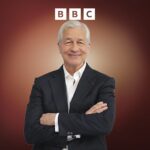.pod-stream-buttons {
display: flex;
justify-content: center;
margin-bottom: 1.5rem;
}
.stream-button {
flex: 1 1;
margin-right: 0.5rem;
}
.stream-button:last-child {
margin-right: 0;
}
.stream-button a {
display: flex;
}
.stream-button object,
.stream-button img {
width: 100%;
height: 100%;
}
.image-caption {
display: none;
}
.pod-stream-buttons {
display: flex;
justify-content: center;
margin-bottom: 1.5rem;
}
.post-thumbnail {
display: none;
}
.stream-button {
flex: 1 1;
margin-right: 0.5rem;
}
.stream-button:last-child {
margin-right: 0;
}
.stream-button a {
display: flex;
}
.stream-button object, .stream-button img {
width: 100%;
height: 100%;
}
.wp-remixd-voice-wrapper {
display: none !important;
}
When peacemaking is quiet, stubborn and deeply human.
In this conversation, host Amanda Henderson sits with RNS reporter Claire Giangravè to open the door on Vatican diplomacy during the Gaza ceasefire. We hear about priests who refused to leave a bombed parish that sheltered hundreds, the “Pope’s hour” of daily calls that steadied a frightened community and the uneasy politics of neutrality when lives are at stake. From Cardinal Pierbattista Pizzaballa’s gritty, multilingual bridge-building to new Pope Leo’s outreach to Jewish leaders, the episode invites listeners to consider how ceasefire differs from peace—and why slow, persistent, often invisible work still matters. Thoughtful, curious and politically frustrated? Pull up a chair.






